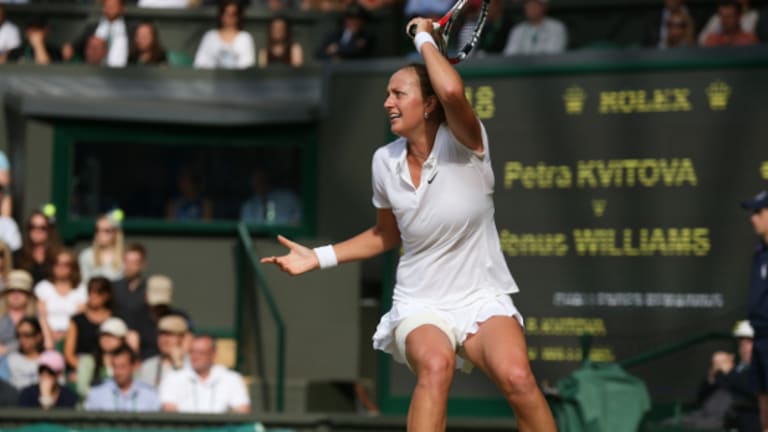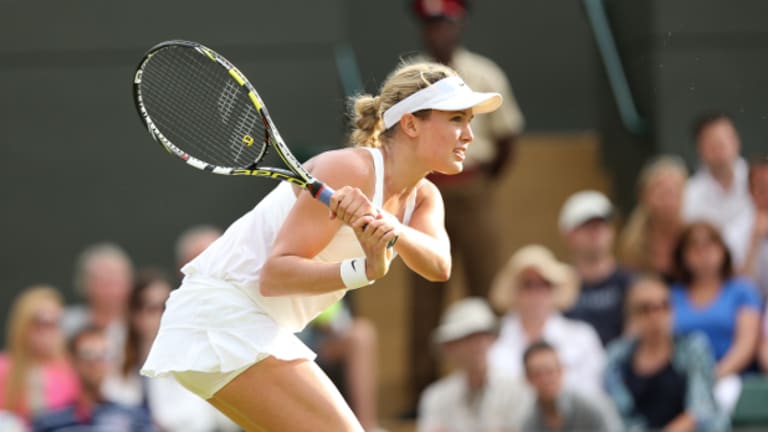WIMBLEDON, ENGLAND—Eugenie Bouchard and Petra Kvitova aren’t friends, have never practiced together, and have rarely, if ever, spoken.
“I don’t know her that well,” Bouchard said.
Kvitova was even more definitive.
“I don’t know her."
Yet these two have had one big thing in common over the last two weeks. It’s not just that they’ve been the two best players at Wimbledon, they’ve also been the most stubbornly determined throughout. From the start, Kvitova has been inspired by her surroundings. Driven to avenge, or at least forget, her bitter quarterfinal loss here last year, she has played as if the trophy already belonged to her.
On the other side of the draw, Bouchard has played with, as she has said many times, an unrelenting focus on the next task at hand. Point to point, match to match, the 20-year-old has, with the possible exception of Roger Federer, been the most composed and clear-thinking competitor in either draw.
It should surprise no one that Bouchard’s first answer in her press conference today went like this:
“Proud of what I accomplished, but the job’s not over.”
Kvitova was even more blunt in her assessment of her feelings at the moment.
“I want to win, yes,” she said.

